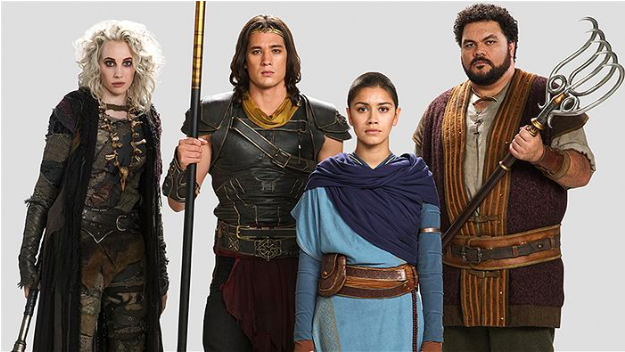By Olivia Capasso || Junior Editor

Photo courtesy of kenyabuzz.com.
The Netflix adaptation of ancient Chinese fable “Journey to the West” first aired in January of 2018 and has since received significant backlash from viewers and critics alike regarding the apparent “whitewashing” of the core cast. According to NextShark, the New Zealand- Australian co-production created a ten-part series based on the treasured story of a Tang Dynasty Buddhist monk’s pilgrimage to Central Asian and India. Regarded today as one of the Four Great Classical Novels of Chinese literature, Ming Dynasty novelist and poet Wu Cheng’en recounted the historical travels of the monk who had set out to attain a set of sacred Buddhist texts, only to return after much toil and suffering. The original “Journey to the West” is deeply rooted in Chinese folk religion, mythology, and Buddhist philosophy, and rendered the production of numerous acclaimed English translations and media reconstructions.
According to The Straits Times, on 20 April, 2017, production of the live-action TV series called “The New Legends of Monkey” was announced by Australia’s ABC, TVNZ, and Netflix, attracting a surge of negative media attention. The core issue that the public found with the adaption is its evident departure from Chinese tradition and heritage, especially since none of the core cast is of Chinese descent. Many have rightfully expressed concern regarding the producers’ casting choices and stated outward disapproval of the continuation of the series. As a fable so deeply valued by and intertwined with Chinese culture, such decisions to “whitewash” the essence of the classic are simply inappropriate given the situation.
The adaptation of this story so clearly is an attempt to profit off of the respected and universally acclaimed tale that has been passed down through Chinese families for generations. The New World Encyclopedia states that Wu Cheng’en’s “Journey to the West” served originally as a tale of spiritual enlightenment, virtue, and an interpretation of the Chinese bureaucracy during the sixteenth century. The fable encapsulates a portion of Chinese identity and pride, and by diverging from the intended account in order to appeal to a greater audience, producers of “The New Legends of Monkey” have succeeded solely in disrespecting a culture and facing backlash for their poor judgement.
This is not the first scenario in recent history where Hollywood has been accused of casting popular white actors and actresses for roles in the place of racial minorities, and it will surely not be the last. In 2016, Matt Damon starred in “The Great Wall,” a role intended for a Chinese actor, while the producers of “Gods of Egypt” created a core cast that was non-Egyptian, and notably primarily white. The “whitewashing” of such culturally foreign films in the American industry has developed into a widely spread issue, one that seems to be halted only by a collective rejection by the society.
First-year Olivia Capasso is a Junior Editor. Her email is ocapasso@fandm.edu.